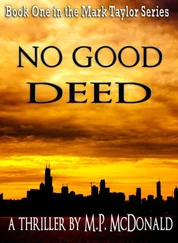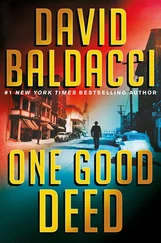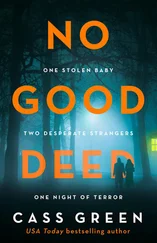I nodded, more grateful than Gerald could know for his prompt assessment of the situation. The double shock of seeing him in the all-too-attractive flesh and Nell in yet another role had turned me into a gibbering idiot. I had no doubt that I looked exactly like a hapless employee saddled with the boss’s spoiled brat.
“I assume the grandpapa in question is William Willis?” Gerald asked.
“Uh ...” I informed him.
“Never mind,” Gerald said kindly. “I’m sure it’ll sort itself out. In the meantime, my housekeeper is preparing tea. Would you care to join me, Miss ... ?”
“Shepherd,” I managed.
Gerald ushered me into a small entry area at the bottom of a narrow staircase. He eased the briefcase from my unresisting grasp and placed it on the floor beside a rickety-looking telephone table. As he straightened, the phone rang, and he started slightly.
“Good Lord,” he said. “Is it working?” He picked up the receiver and covered it with one hand before nodding toward the hallway. “Back parlor, third door on the right,” he told me. “You go on ahead. I’ll be with you in a moment.”
I stumbled back a step or two, turned, and fled blindly up the hall, raising a hand to find my wedding ring through the gray silk blouse, and gripping it between my fingers like a talisman, while snatches of Gerald’s phone conversation floated to me from the entryway.
“Yes, I know, Doctor.... It’s only just been fixed.... It was inconvenient for me, as well.... No, I’m sorry, but—could you please speak up? ...”
His voice was soft as velvet, rich as old wine, seductive as a Siren’s song, and, desperate to be beyond its reach, I fumbled for the doorknob on my right, slipped hurriedly into the room, closed the door behind me, and slumped against it breathlessly, so relieved by the ensuing silence that a moment passed before I realized I’d opened the wrong door.
I was standing in what appeared to be a storeroom. Drapes had been drawn tightly over the windows, and wooden crates had been piled along one wall. Opposite the stacked crates stood a plain wooden table, an old gray office chair on wheels, and a bookcase filled with auction catalogues and colorful volumes on art and art history. An open crate had been left on the floor beneath the table, surrounded by the crumpled balls of yellowed newspaper that had apparently been used as packing material.
The wooden table held a green-shaded brass reading lamp—the sole source of illumination—as well as a fountain pen and an index-card file, but I noticed none of those things at first. My attention was focused wholly on one object, a gleaming, golden object I’d never thought to see outside the walls of a museum.
It was about fifteen inches tall, in the shape of a cross, with a graceful, flaring base that allowed it to stand upright on the table. Its surface was covered with a complex interlace pattern—of Celtic origin, I thought—and at its center, where the arms met, there was a large, circular rock crystal surrounded by a fluted, gem-encrusted sunburst. The bejeweled sunburst seemed to capture all of the light from the reading lamp and throw it in a dancing, sparkling stream in my direction. I moved toward it, entranced.
It was a reliquary, I was certain, a glorious, sacred vessel created to hold what my old boss, Stan Finderman, irreverently referred to as “Crusader trophies”: a sliver of the True Cross, a lock of some saint’s holy hair—I’d seen one once in Ireland that had been built to hold Saint Lachtin’s entire arm. Some reliquaries were made of ivory, others of fantastically carved stone, but the one that stood before me was made of gold.
It was not pristine. Many of the sunburst’s precious stones were missing, and the arms were gouged in places, but its purity of line gave it an appeal far beyond its obvious monetary value. I couldn’t resist the urge to touch it, to pick it up and turn it beneath the lamp, to watch the play of light along its flligreed surface, the spark of fire in its glittering gems. I wondered who had made it, who had owned it, and how it had come to rest here, in a shabby pillbox of a house in southwest Surrey. With a sudden thrill, I wondered if each crate stacked against the far wall was filled with similar treasures. If Gerald sold one a year, it would keep his bank account bulging till kingdom come.
I was still holding the reliquary, still turning it in the light, when the door opened behind me and a deep, rich voice said softly, “Ah, there you are.”
My grip on the reliquary tightened so convulsively that I cut my little finger on the sunburst’s fluted edge. The sharp pain cleared my head, and I put the gleaming cross back on the table.
“Forgive me,” I said, turning to face Gerald. “I—I didn’t mean to pry. I got the doors mixed up, and then I saw the reliquary and somehow I—”
“Of course.” Gerald shrugged. “It’s the sort of thing that might happen to anyone. Besides, it seems to be my day for inquisitive visitors. I’m afraid I had to physically restrain your young charge from going upstairs to search the bedrooms.”
“Oh, Lord ...” I groaned, bowing my head and raising a hand to my forehead, thoroughly embarrassed.
“No matter,” Gerald said, walking toward me. “She’s in the back parlor now, under my housekeeper’s watchful eye. Shall we—” He broke off. “Good heavens, Miss Shepherd, you’ve injured yourself.” And before I could protest or draw back, he took hold of my wrist and gently pulled my hand toward him.
“Serves me right,” I said, with an unsteady laugh. “I shouldn’t have—”
“Tush,” said Gerald. In one graceful movement, he pulled his spectacles from his shirt pocket and put them on, then peered at me over the rims. “How could anyone behave levelheadedly in the presence of such a beautiful object?”
I felt my knees tremble and forced myself to look down at the reliquary instead of up into Gerald’s sea-bright eyes. “Are you a collector, Mr. Willis?”
“I am a humble cataloguer,” he replied. “And, please, call me Gerald. I refuse to stand on ceremony with a woman who knows a reliquary when she sees one.” He bent low over my hand, and for a dizzying moment I thought he was going to kiss the blood away. “A grave wound, but not, I think, a fatal one,” he murmured solemnly, examining my little finger at close range. “With a bit of sticking plaster, we’ll have you back on your feet in no time.” He released my hand and I released a fluttering sigh, then cleared my throat and tried to think of something sensible to say.
“I hope you’ll let me apologize for Nicolette—” I began.
“No need,” Gerald broke in, his eyes twinkling. “Mademoiselle Gascon assured me you knew nothing of her true aim in coming here. She started to tell a most riveting tale, but I asked her to hold off until you’d joined us.” His ironic smile made it quite clear that he hadn’t believed a word Nell had said. “I don’t know what I’ve done to deserve so many visitors in one day. The first, of course, was your employer.”
“M-Mr. Willis?” I said, thinking fast. “He told me he was visiting a ... a distant relative.”
“Extraordinarily distant,” Gerald agreed smoothly. “Until today I’d no idea of his existence.” Gerald gestured toward the door. “Shall we relieve Mrs. Burweed of guard duty?”
As we left the storeroom, I couldn’t help marveling at Gerald’s benign reaction to two strangers barging around his house. He had every reason to be indignant—outraged, even—but instead he seemed bemused by Nell’s insufferable behavior, and oddly charmed by my own. Gerald Willis seemed to have the patience of a—
I caught myself midsentence and nearly laughed aloud. In the space of a few brief minutes, my womanizing wastrel had become an angel cataloguing sacred objects—and I was fully prepared to absolve him of the womanizing bit. With a face like that, he probably had little choice in the matter. Receptionists, chambermaids, and bar-tenders no doubt threw themselves at his feet every day. And who could blame them? Even if Cousin Gerald had been ugly as mud, his charm would have made him irresistible.
Читать дальше








